Are you looking to request your medical records but not sure how to get started? Navigating the process can feel a bit daunting, but with the right letter template, it becomes much easier. This simple guide will walk you through the essential components to include, ensuring your request is clear and effective. Ready to take charge of your health information? Let's dive in!
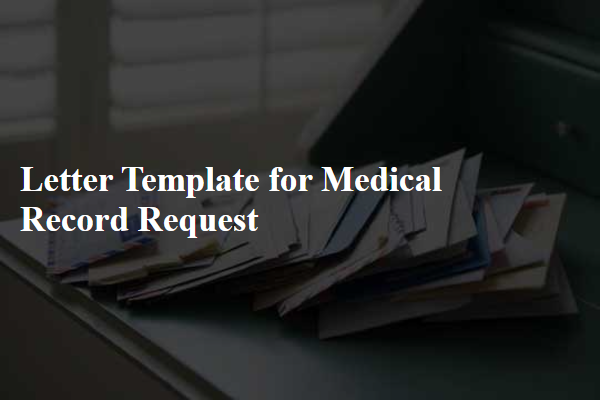
Patient Identification Information
Patient identification information is crucial for securing accurate medical records from healthcare providers. Each record should include full legal name of the patient, date of birth specifying the exact date (e.g., February 15, 1985), and address including street name, city, state, and zip code (e.g., 123 Main St, Springfield, IL, 62701). Additionally, including phone number (e.g., (555) 123-4567) and Social Security number (optional but helpful) can further assist in verifying identity. Important medical record specifics such as dates of treatment or hospital visits should also be clearly stated to ensure all relevant information is retrieved efficiently.
Purpose of Request
A medical record request aims to obtain an individual's health information for various purposes, such as continuity of care, legal documentation, insurance claims, or personal record-keeping. The request typically includes necessary details, such as the patient's full name, date of birth, and medical record number, while specifying the exact documents required, such as lab results, imaging studies, and treatment histories. Authorized requests require a signature and date, ensuring compliance with regulations under the Health Insurance Portability and Accountability Act (HIPAA). These records facilitate informed health decisions and enable effective communication among healthcare providers.
Authorization and Consent Statement
The Authorization and Consent Statement serves as a formal agreement allowing medical facilities to release a patient's sensitive health information. This document includes essential details such as the patient's full name, date of birth, and identification number for accurate verification. Additionally, it specifies the type of medical records being requested, such as diagnostic tests, treatment history, and physician notes. The statement must also include the name of the requesting party, along with the purpose of the request (e.g., continuity of care, legal reasons). It's vital that the patient signs and dates the authorization to ensure legal compliance under regulations like HIPAA (Health Insurance Portability and Accountability Act), which protects personal health information. Furthermore, the document should inform the patient about their rights to revoke consent at any time before the records are disclosed.
Specific Records Requested
Medical record requests often pertain to sensitive health information essential for ongoing treatment or legal purposes. Specific records may include diagnostic test results (like MRI scans performed at XYZ Imaging Center on September 15, 2023), treatment histories (from Dr. John Smith, a cardiologist at ABC Medical Group since January 2020), and vaccination records (pertaining to COVID-19 vaccines administered at Community Health Clinic on March 3, 2021). Essential details such as patient identification numbers, date of birth, and contact information need to be provided for processing requests efficiently. Compliance with HIPAA regulations ensures the confidentiality of this health information during the request process.
Contact and Delivery Instructions
When requesting access to medical records, it's important to include specific contact details and clear delivery instructions. For example, a request might involve providing the full name of the patient, date of birth, and patient identification number (if applicable) for identification purposes. It's essential to include an up-to-date phone number, email address, and mailing address to facilitate communication. Additionally, specifying the preferred method of delivery, such as secure email, postal mail, or in-person pickup at the medical facility (e.g., St. Mary's General Hospital, located in Toronto, Ontario), ensures that the request is fulfilled efficiently. Including a deadline for the delivery of records (e.g., within 30 days) can also help expedite the process and maintain urgency.

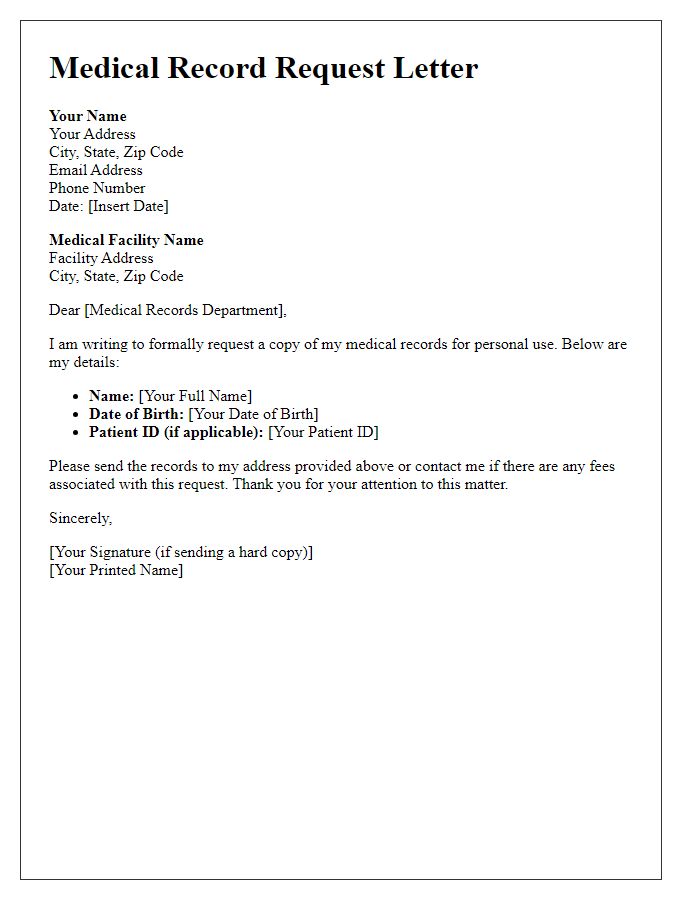
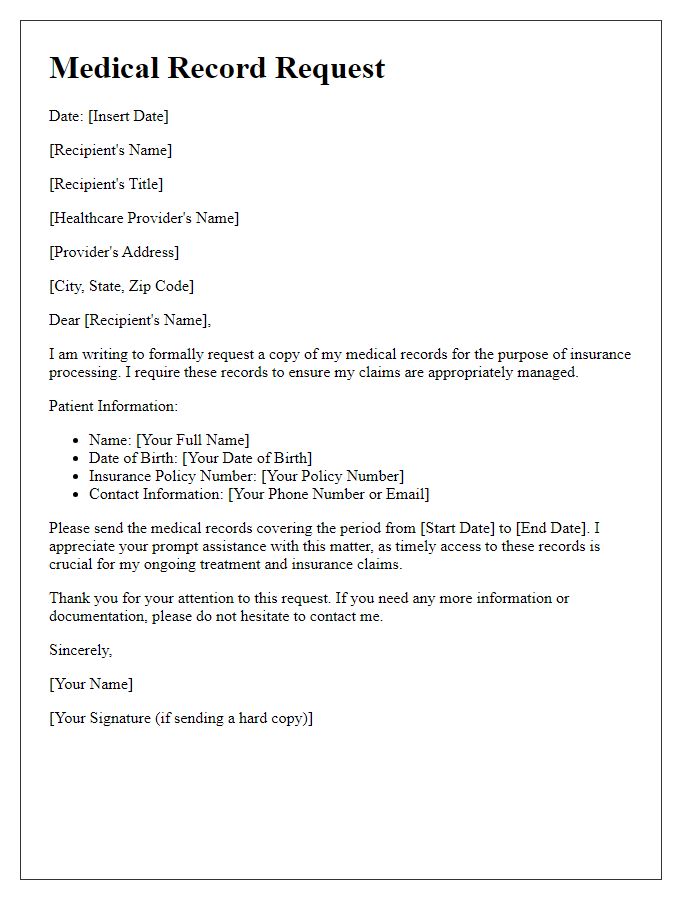
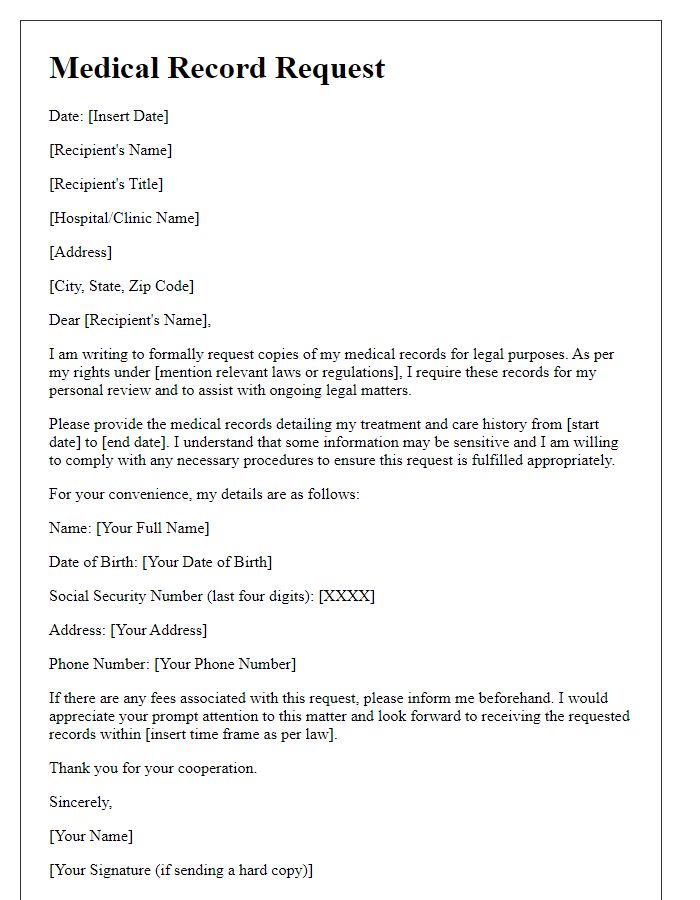
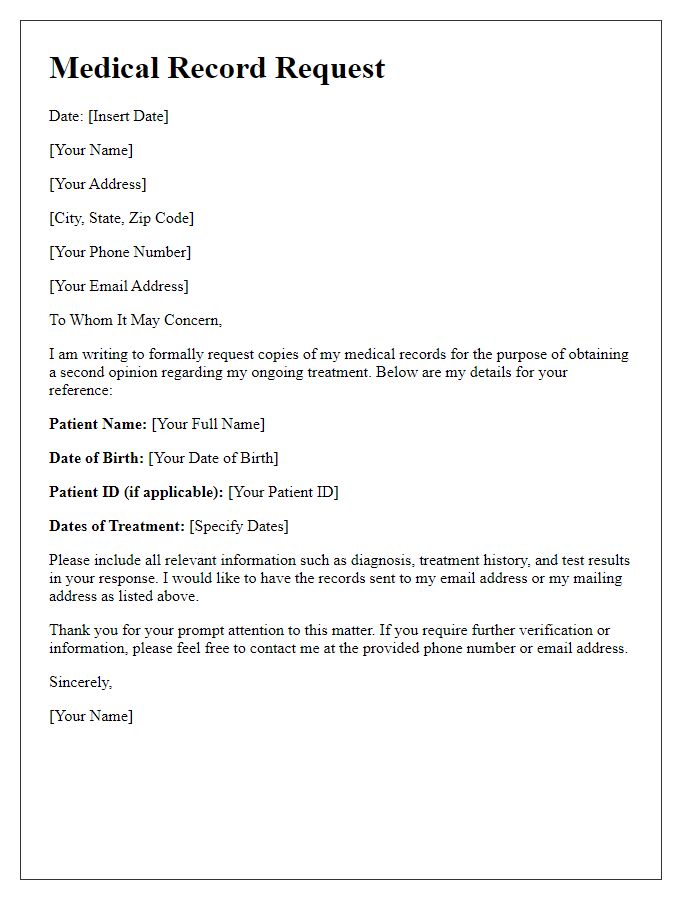
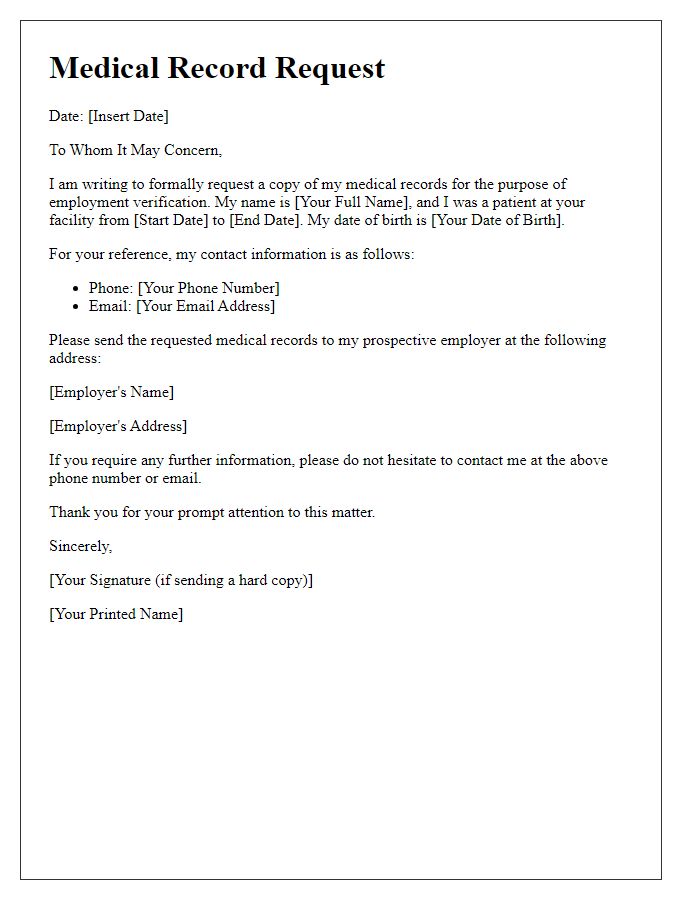
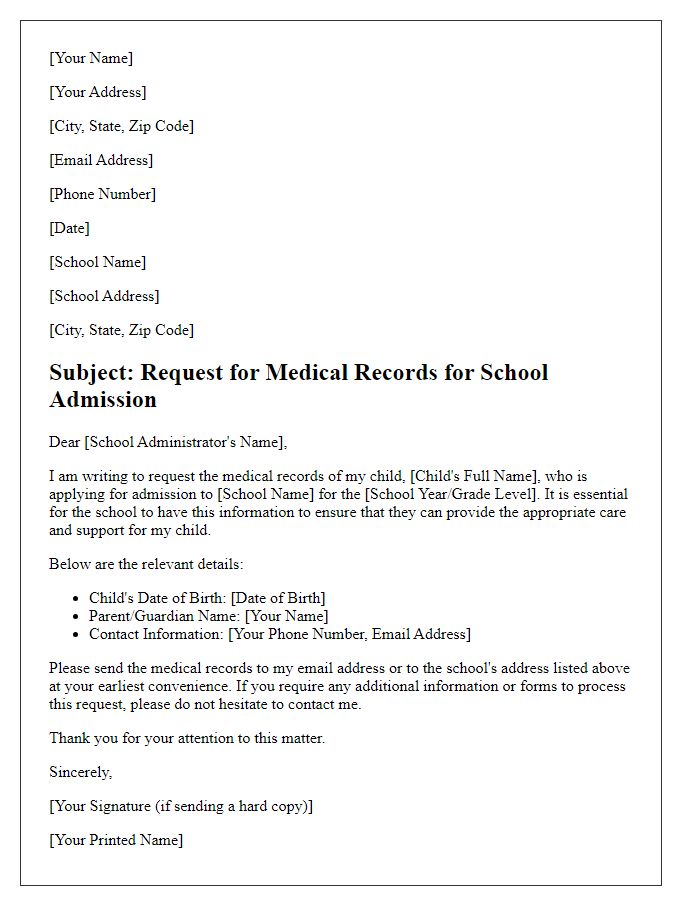
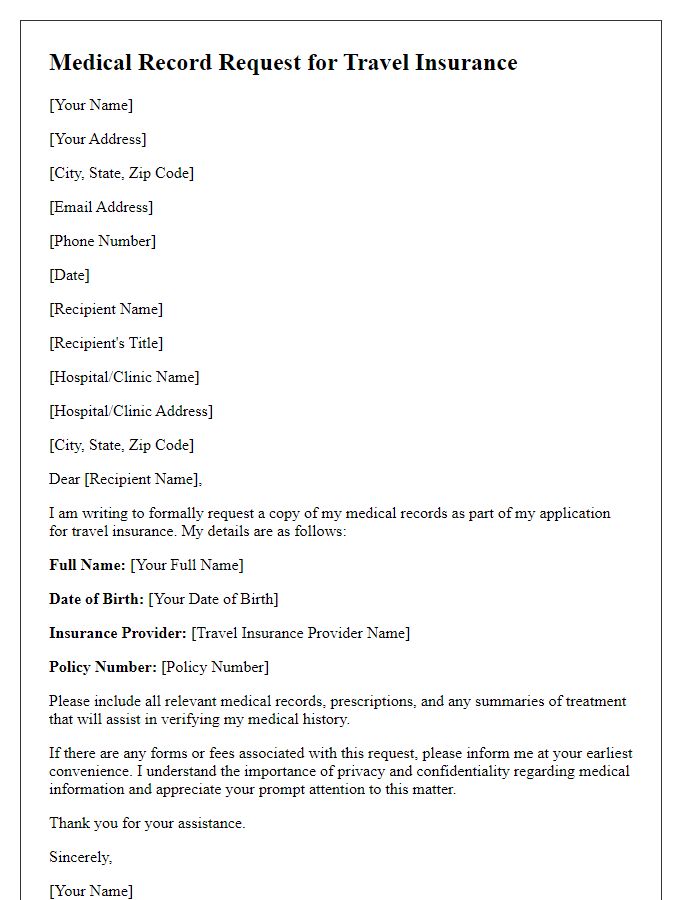
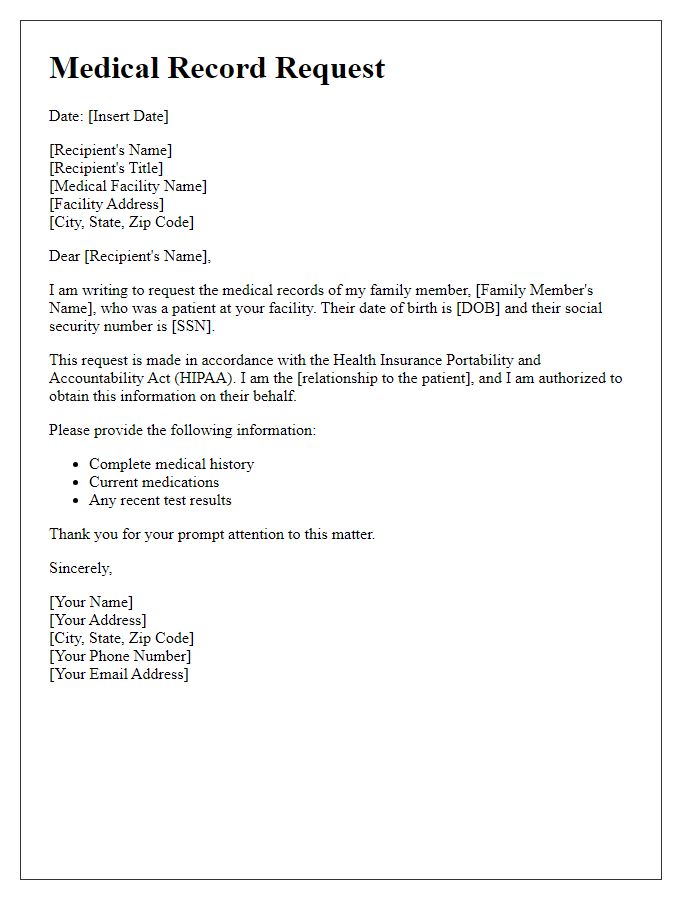
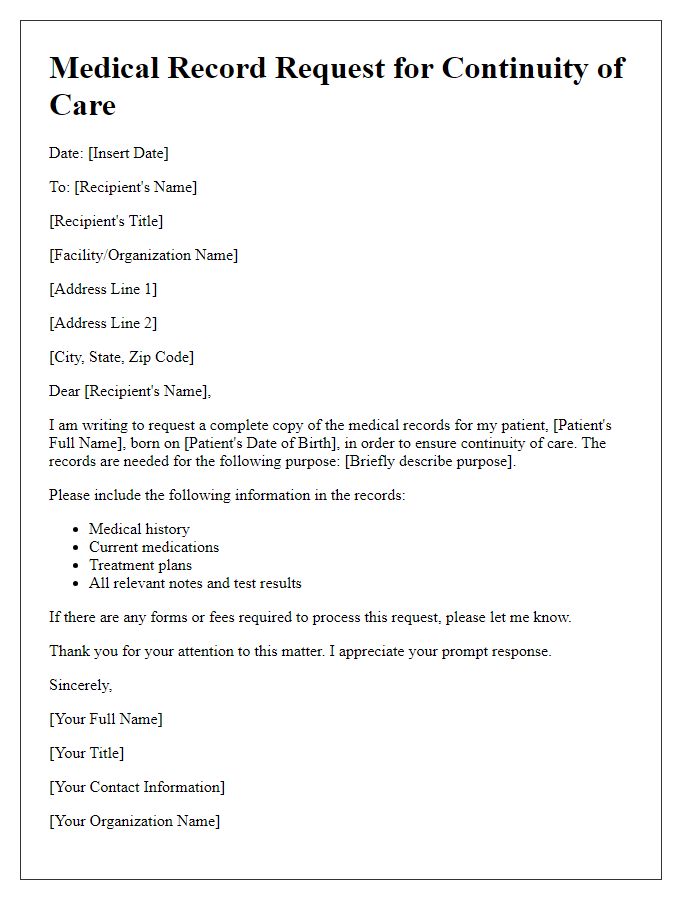
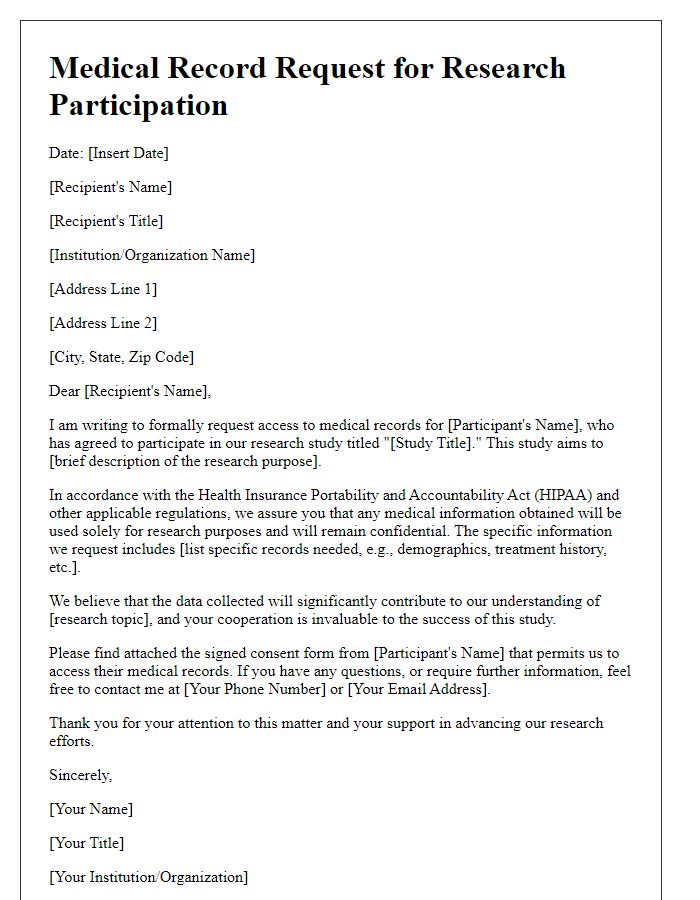


Comments